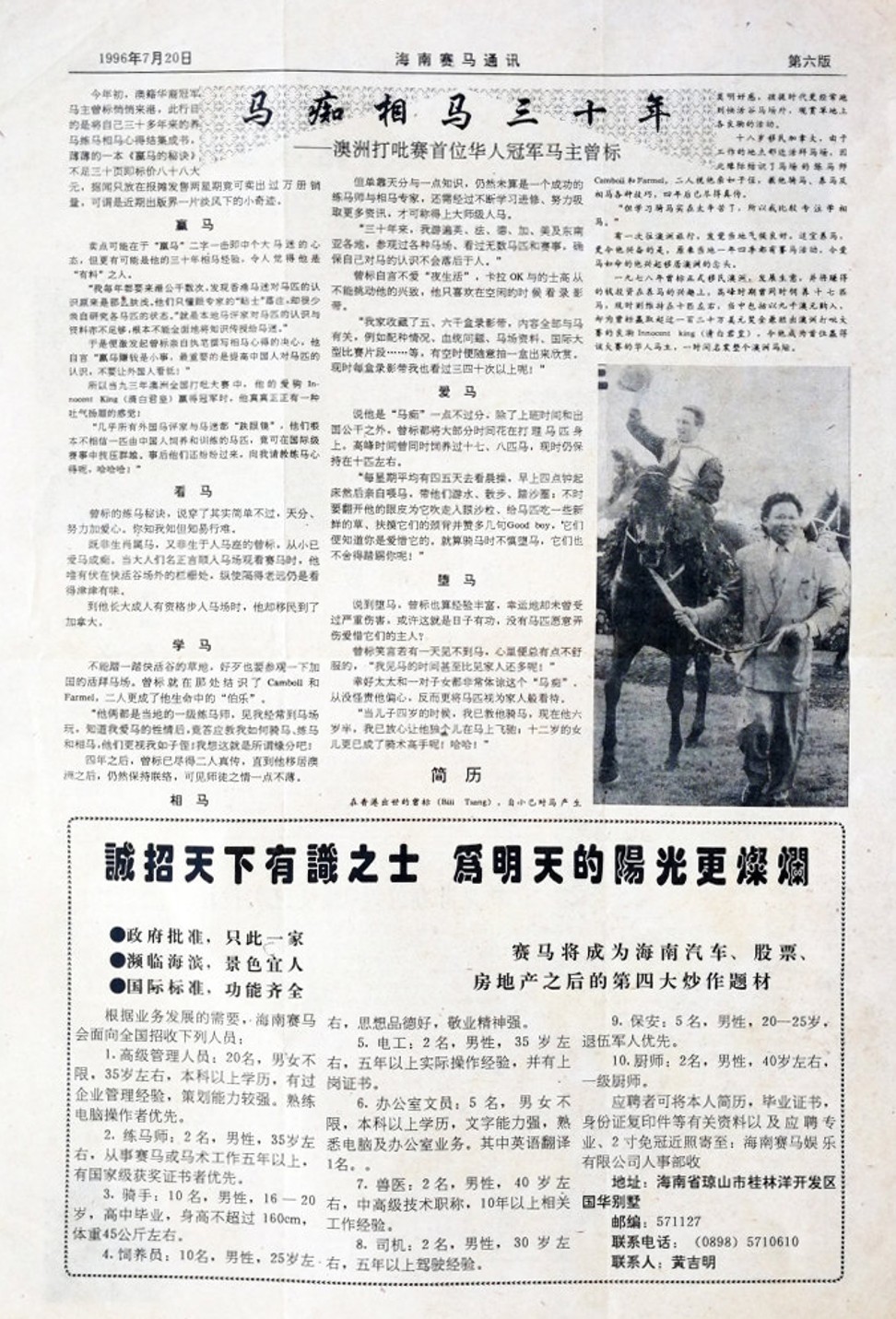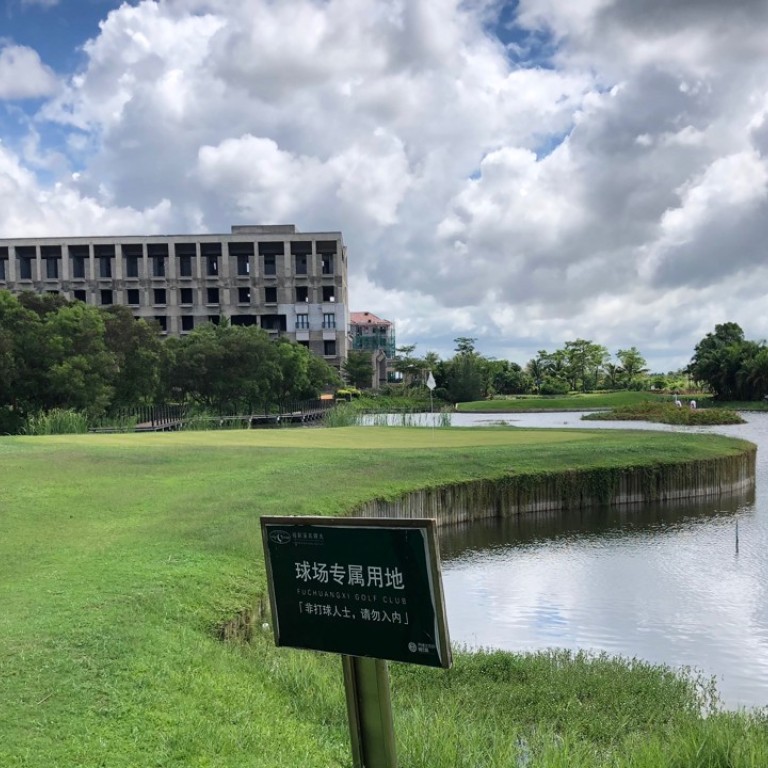
In Hainan’s new free-trade zone, horse racing and betting dream still has many furlongs to go
After two previous attempts to set up the sport, success this time will depend on whether leadership can overcome reluctance to take political risks
When President Xi Jinping announced in April his initiative to make all of Hainan – China’s southernmost province – a free-trade port, excitement spread through the tropical island’s nine million residents.
Aficionados of horse racing, and the betting that would accompany it, were particularly enthused, hoping that the third attempt to establish the sport in Hainan in the last 30 years would be a charm.
But the problem that doomed the first two attempts – a lack of clear political support – may stand in the way of establishing horse racing this time, too.
BULWARK AGAINST PROTECTIONISM
Xi, who first visited Hainan with his father in 1979, looks at the free-trade zone project not only as a way to continue paramount leader Deng Xiaoping’s reform and economic opening started four decades ago, but also as a gateway to counter the trade protectionism of US President Donald Trump.
Covering an area of 34,000 sq km (8,401,583 acres), Hainan is slated to become the world’s largest free port, eclipsing Hong Kong, Singapore and Dubai.
Chinese resorts are quietly setting up baccarat tables in Hainan
“Making Hainan a free-trade port sends a clear signal that China wants to build the world’s best environment for business, increase protection of intellectual property rights, and establish a fair, open and transparent legal environment to counteract US protectionism,” Wei Jianguo, former deputy minister of commerce, told state-run China Fortune Media in April.
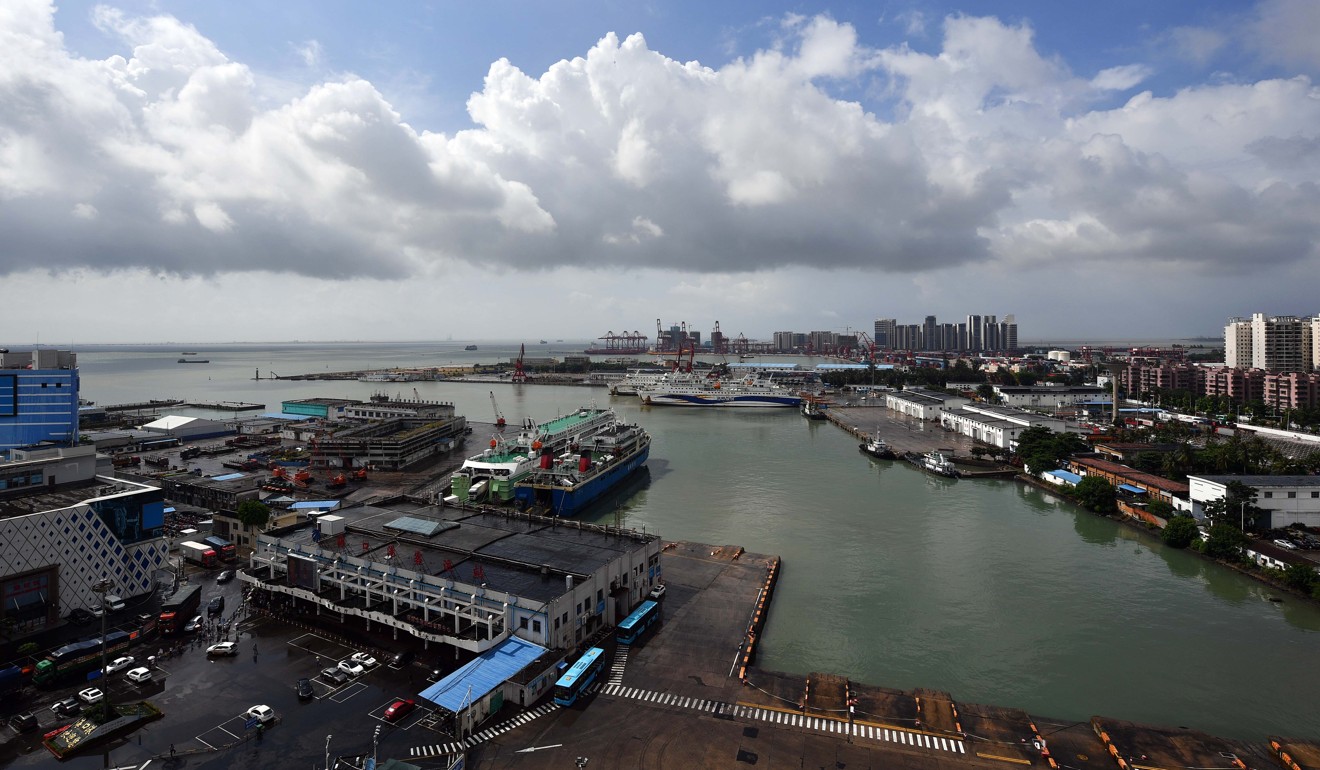
WAVE OF ENTHUSIASM
Following Xi’s announcement, the provincial government wasted no time backing the president’s plan with new policies. Some are ambitious: recruiting one million skilled workers and attracting significant investment from Fortune 500 companies.
Hainan’s Communist Party chief Liu Cigui, an old colleague of Xi in the early 2000s, declared publicly that he would “do three days’ work in one” to tirelessly support the scheme.
But of all the new projects that have been proposed, the one most hyped by the media, and the one with the highest interest from Chinese investors, but with the least government support, is legalising horse racing – a sensitive topic that supporters are pitching as a symbol of the openness the island is seeking to project.
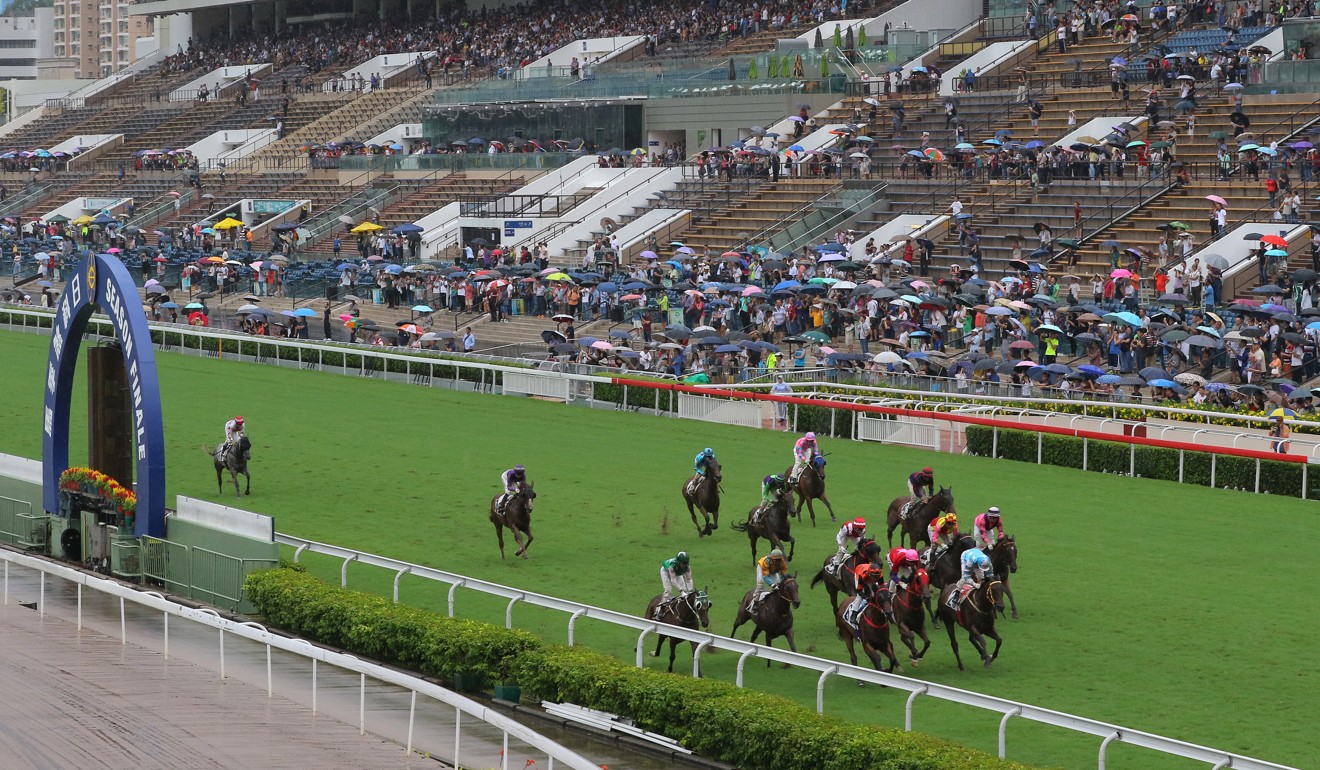
DELICATE BALANCE
The burden is on the local government to implement the policies necessary to fulfil Xi’s vision without doing anything that offends the central government, which makes horse racing, and the betting that would be expected to be associated with it, a very delicate matter.
The timing of the debate is also tricky, as the top leadership is facing many challenges at the moment: a trade war to fight, a slowing economy to support, and a deleveraging campaign to sustain.
“From a business perspective it makes sense [to develop horse racing and betting]. But my concern is that it may run counter to the current economic policy direction that is focused on the real economy,” said Ether Yin, a partner with Beijing-based research firm Trivium China. “Still, we can’t rule out the possibility that Beijing wants to test it in Hainan separately.”
‘China’s Hawaii’ looking for 1 million new residents
Beijing has stated its support for developing horse racing as well as “exploring a sports betting lottery and an instant lottery on large international events” without giving direct support for betting on horse racing. This has left it to the Hainan government to decipher the top leadership’s current thinking.
For those who have experienced Hainan’s two previous flirtations with horse racing, the outlook for the project will depend on overcoming the reluctance of top leaders to take political risks.
TWO PAST MISCARRIAGES
Hainan’s first attempt to establish horse racing came in 1993, with plans for a 700 mu (about 47 hectares, or 115 acres) racecourse, along with a five-star hotel, and other first-class facilities on 2,000 mu (133 hectares, or 329 acres) of farmland in the eastern part of Haikou, the island’s capital.
But then-president Jiang Zemin effectively killed the project during a visit to the island in early 1993, according to Liu Shusheng, a local propaganda official in his 20s at the time, who joined the new Hainan Jockey Club as a newsletter editor.
At a meeting, Jiang was asked by a local official: “Can we do a red light district and horse racing like foreign countries?” Jiang reportedly replied: “Let’s not do things so Western. We need to do something bearing national characteristics.”
The second attempt came in 2009, when Beijing decided to make Hainan into an international tourist resort over the next decade. With the island’s development high on Beijing’s agenda, there seemed to be a chance to revive the abandoned racecourse that had since been made over into pig farms.
But Hainan’s then Communist Party chief, Wei Liucheng, killed the idea at a press conference in January 2010, saying there was no plan to start horse racing in Hainan.
Today, the old racecourse site has been turned into a residential project. A dilapidated horse stable is the only trace of the old infrastructure.
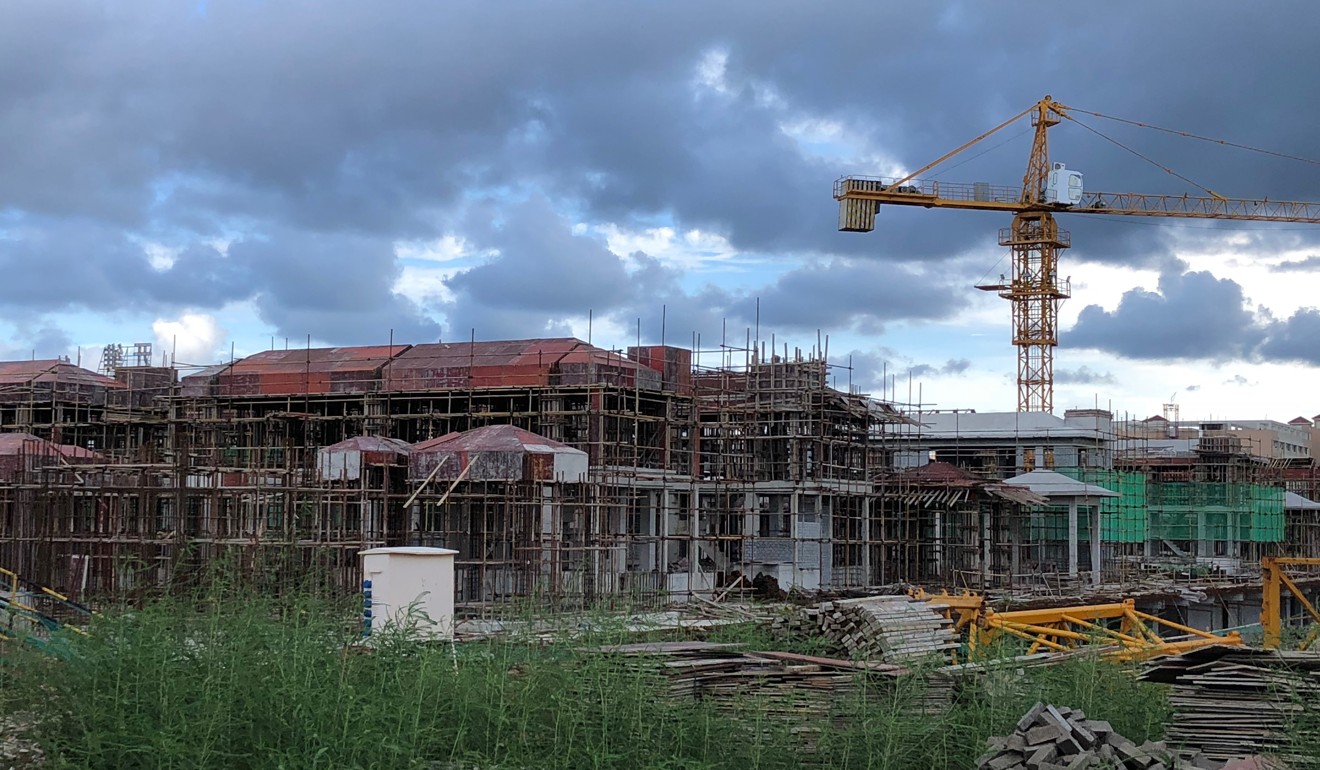
INVESTORS PILE IN
As soon as Xi’s free-trade port initiative was announced in April, there was a jump in the number of local corporate registrations that included some variant of “horse racing” in the name, which forced the government to freeze new applications or modifications of existing applications for that type of business.
At least nine companies claiming to be in the racing business were registered between 2016 and 2017.
More than 20 Chinese companies have so far prepared to test the waters of horse racing but most are eyeing lucrative betting operations based on the sport rather than getting involved in the sport itself, according to Shi Xiaodong, who co-founded the Hainan Equestrian Association and offers business consulting on the subject.
Industry insiders, some of whom refused on-the-record interviews, confirmed the local government is quashing any speculation about the outlook for horse racing at the moment. In June, local authorities stressed that any information about horse racing in Hainan should be considered rumour until the official plan – currently being drafted – is made public at some indefinite time in the future.
‘China’s Hawaii’ set to become pilot free-trade port
Reports of partnerships and deals have met with sharp official denials. In May, Xinhua news agency reported that Chengmai, one of four counties in Hainan, had signed a three-party partnership with local online betting company Longy Sharing and Macau gaming giant Suncity Group to develop a racecourse in the county.
Xinhua later retracted the story. Liu Shusheng, who republished the report on his social media account, was ordered by the Office of the Central Cyberspace Affairs Commission, the official internet censor, to take the story down.
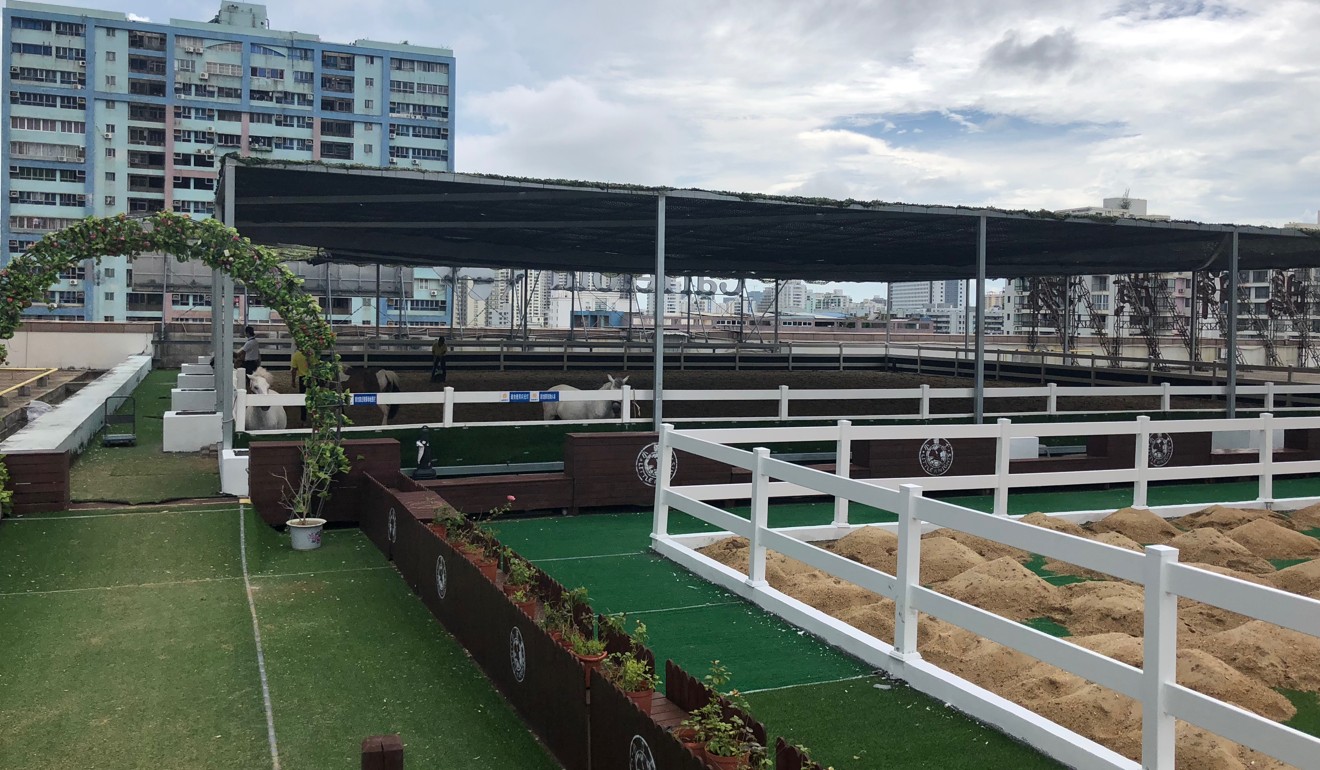
In June, Yongtai Group, a major coal-fired electricity producer from northern China, proposed setting up a joint venture with state-owned Haiken Group, the biggest landlord in Hainan, to develop horse racing.
But the joint venture, with planned registered capital of 1 billion yuan (US$144.53 million), fell apart; it was only made public after Yongtai defaulted on a bond worth 1.5 billion yuan in early July.
Ken Chu, chief executive of Mission Hills Group, a golf club and resort developer from Hong Kong, told the South China Morning Post in a recent interview that soon after Xi’s initiative was announced, at least seven companies had knocked on his door to discuss potential partnerships to develop equestrian sports, horse racing, or horse betting at the company’s resort in Hainan.
“The central government’s policy certainly leaves room for imagination,” Chu said.
BETTING ON A LONG SHOT
But a racecourse cannot break even, let alone make a profit, without the income from betting on its races. The maintenance cost of a racecourse facility – including track, grandstands and stables – is high. Income from tickets, sponsorships and broadcasting rights of racing only cover a small portion of those costs.
China backs horse racing and new sports lotteries in Hainan
To be sure, horse-race betting was very popular across China before the party shut it down in 1949. Since then, several Chinese cities have built large racecourses but were unable to generate adequate revenues because of policy restrictions. In the 1990s, Guangzhou tested horse-race betting but the authorities later closed it because of cheating scandals.
Nanjing International Racecourse in Jiangsu province, which cost a hefty 500 million yuan to build in 2003, lost millions of yuan annually. Though the course remains open, most of the 1270 mu of land on which it stands is now used for parking cars.
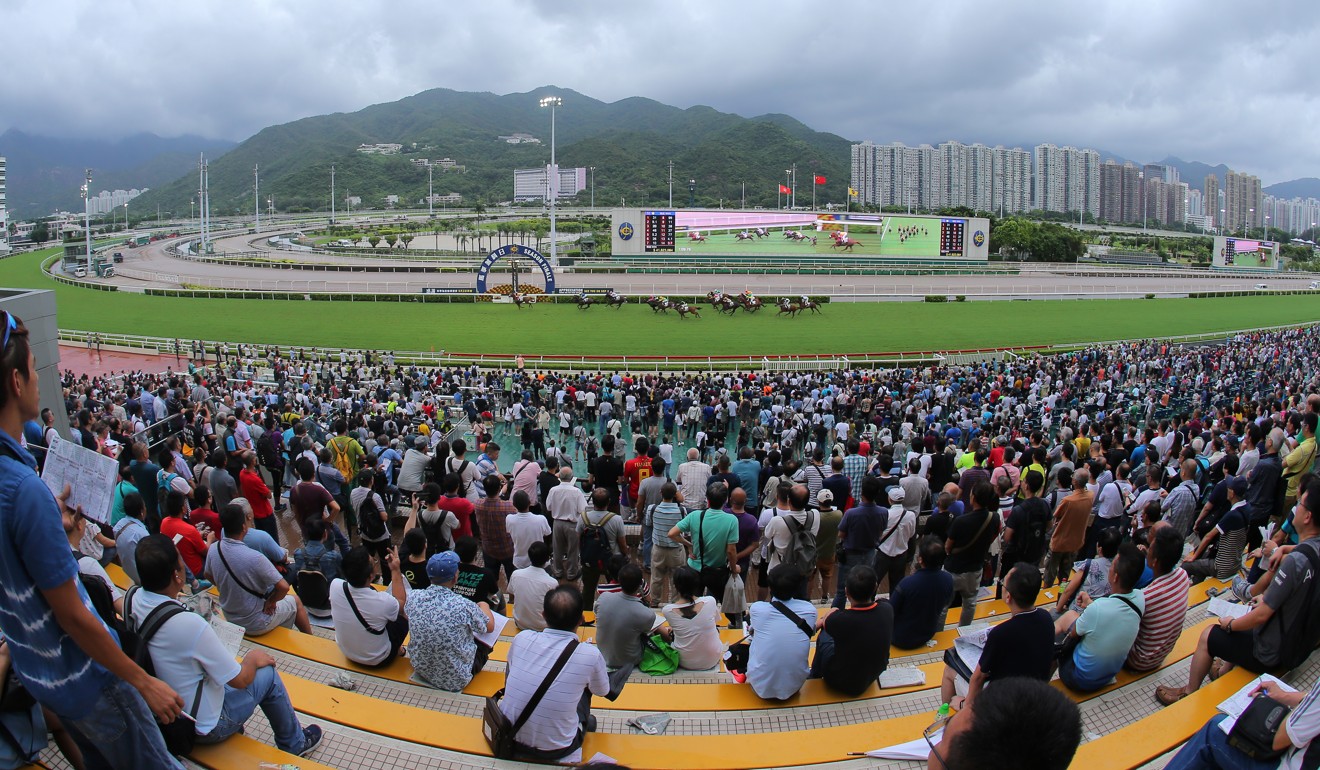
BOOST TO TAX REVENUES … AND ILLEGAL ACTIVITY
Proponents of horse-race betting often argue that it brings in large sums of tax revenues, creates jobs and helps the local economy grow. For instance, the Hong Kong Jockey Club generated HK$37 billion in revenue during the 2016/17 season and paid about HK$21.7 million in tax to the Hong Kong government.
Hainan is now looking for another source of growth now that property sales are on hold and seasonal tourism is insufficient to drive its economy. Compared with the development of Shenzhen, which became a special economic zone in 1980, Hainan has lagged far behind. In the late 1980s, Hainan’s economy was still larger than that of Shenzhen; now it’s only a fifth as large.
Opponents of legalising horse racing and betting in Hainan point to the proliferation of the island’s illegal underground lottery, which has been hard to regulate and has frustrated local authorities for years.
The exact scale of underground lottery was unknown, but an exposé of an online gambling scheme involving 750 million yuan last year provided a snapshot of an illegal web of betting across the island. As early as 2004, state media reported that annual turnover from the illegal lottery had already reached 1.8 billion yuan at its peak.
THERE IS STILL HOPE
For Shi Xiaodong, who moved to Hainan from northern China in 2010, there is still reason to remain upbeat about the outlook for horse-race betting, though he feels the country’s leadership is still constrained by ideology that strongly opposes such a capitalist enterprise.
“Breaking through the barriers to horse-race betting is to a large extent about breaking down [the leadership’s] psychological barriers,” Shi said.
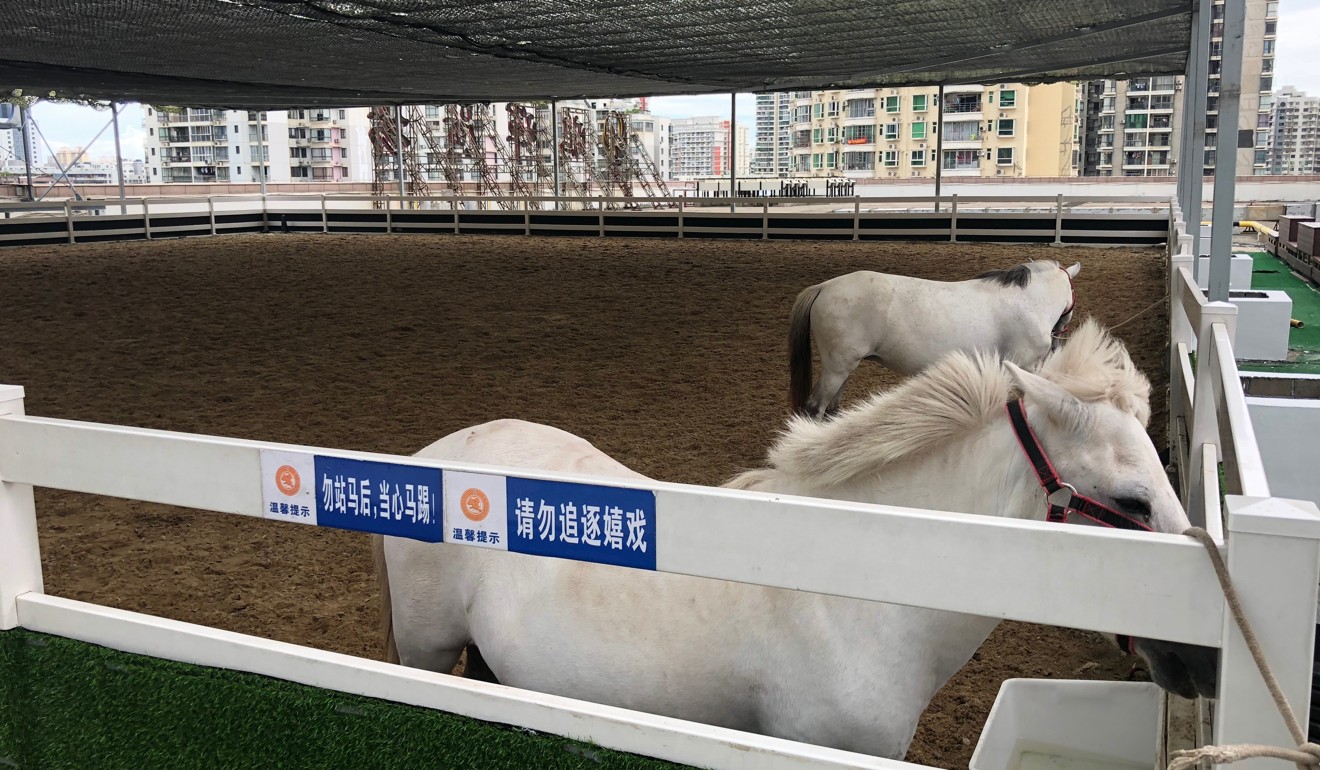
Even if sports betting is authorised, there is still some debate on whether Hainan should copy Hong Kong’s betting software or create something from scratch.
The public’s reaction is a smaller concern, Shi said, since horse riding is enjoying growing popularity among Chinese youth. In the past decade, the number of equestrian clubs has grown tenfold to more than 1,400 across the country, according to industry magazine Horsemanship.
Shi himself operates an equestrian club on the roof of a commercial building in Haikou to teach children horse riding. The club was controversial mostly because there was no precedent for such a project, but Shi said the Hainan government still gave him their full backing.
“In the West, endorsements from aristocrats have popularised horse racing,” Shi said. “In China, it’s down to children.”
Twenty-five years after first joining the now defunct Hainan Jockey Club, Liu Shusheng is still not ready to give up on his horse racing dream, despite the obstacles that remain.
Betting on its revival, he has registered a handful of related internet domain names such as 0898jc.com (0898 is Hainan’s area code), hainjc.com, and Hainanjockeyclub.com.
“Some people have already reached out to buy them, but I declined,” Liu said.


